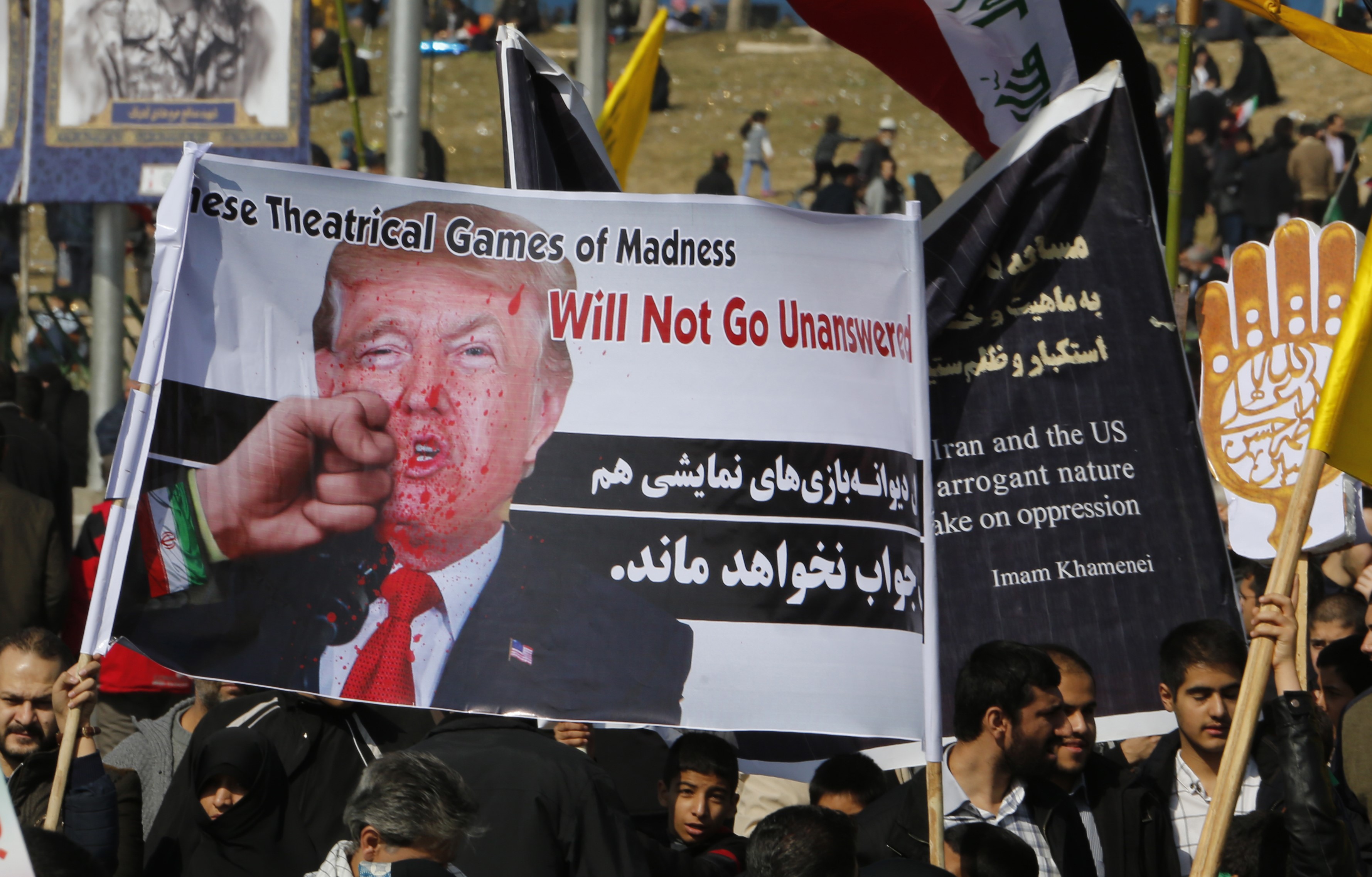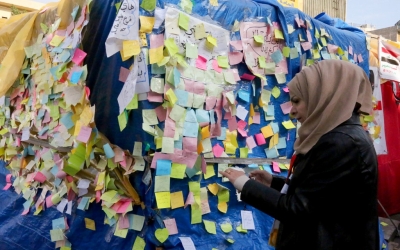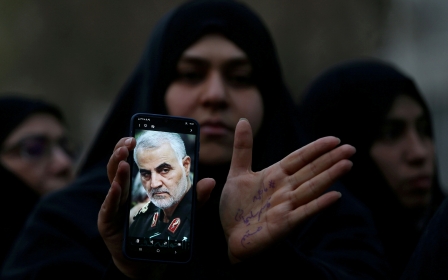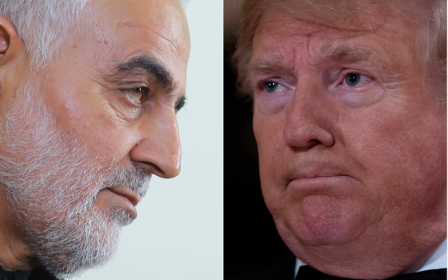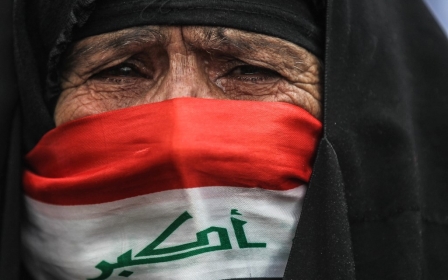Iraqi and Iranian youth are not fooled by Trump and Pompeo's cynical rhetoric
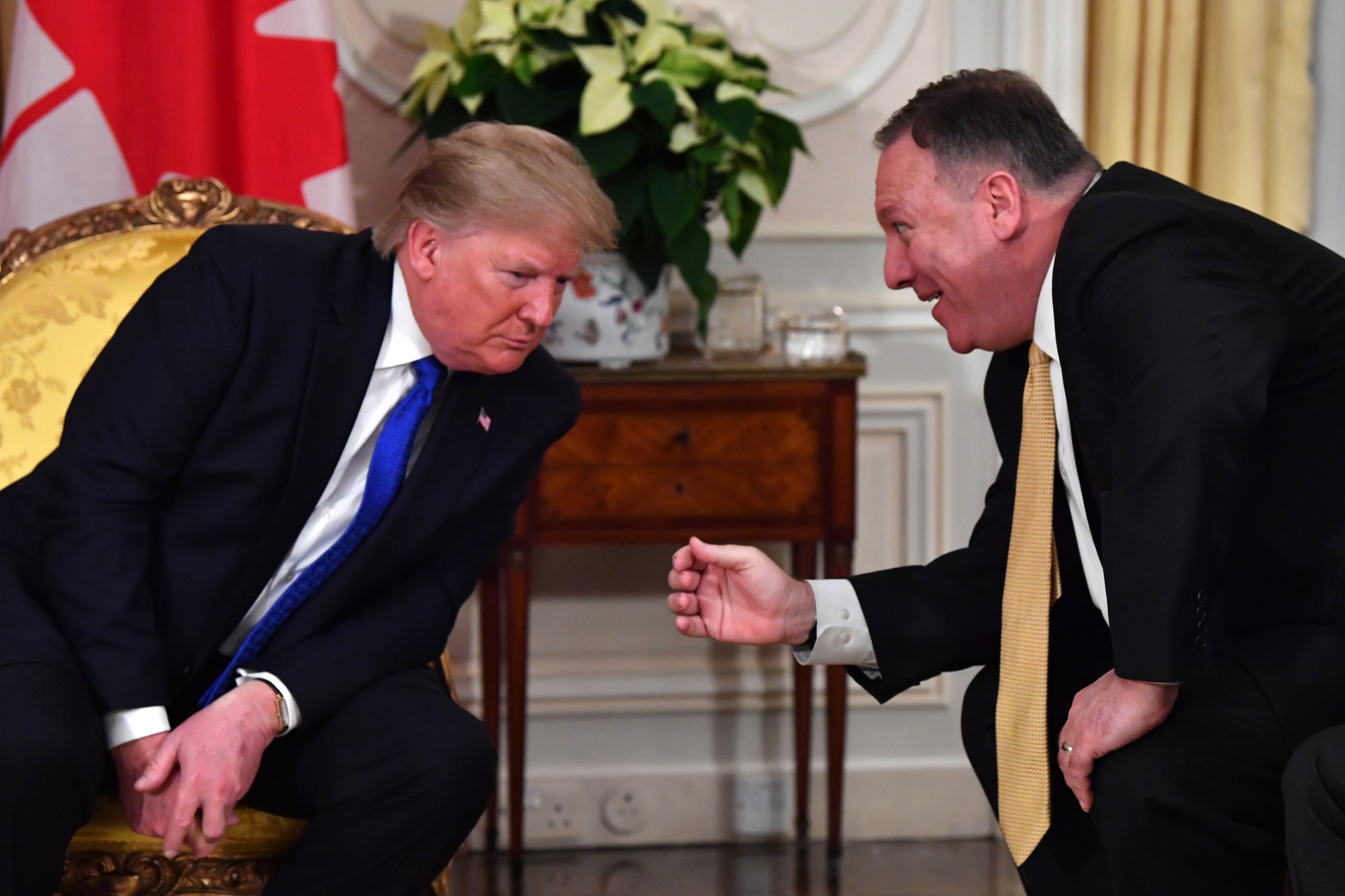
US President Donald Trump and officials within his administration have tried to spin recent protests in both Iraq and Iran in their favour. In two cases, America’s diplomat-in-chief, Secretary of State Mike Pompeo, has misread and misinterpreted the mood on the Iraqi and Iranian streets.
Pompeo, first, misrepresented Iraqi protests allegedly celebrating the targeted American killing of Qassem Soleimani, commander of al- Quds forces of Iran’s Revolutionary Guard Corps (IRGC).
Second, he, as well as Trump, have taken advantage of an Iranian tragedy, the accidental downing of a Ukrainian civilian airliner and the death of 176 passengers, and have tried to instrumentalise it in the administration’s favour.
Iraqi nationalism
Iranian and Iraqi protesters might criticise their governments, but they are also opposed to US violations of their sovereignty, whether it is drone strikes on Iraqi soil or the assassination of an Iranian general, or tweets that attempt to take advantage of their protest movements.
The protests were never pro-American and are more emblematic of a new Iraqi nationalism
Following Soleimani's assassination, there were alleged reports of Iraqis taking to the street to celebrate his death, however these claims have spurious origins. One video of such an event was posted on Pompeo’s Twitter feed, and this news was covered by Al-Sharq al-Awsat and Al-Arabiya, two news outlets funded by Saudi Arabia, which would have an incentive to portray Iran’s influence in Iraq in a negative light.
Since October, Iraqis had led a protest movement that wanted an end to Iran’s influence via peaceful means, through their voices, not missiles launched from an American drone.
The protests were never pro-American and are more emblematic of a new Iraqi nationalism, led by a young generation who came of age after the US-led invasion and occupation of Iraq in 2003, and who are frustrated by their leaders’ failure to deliver reliable governance.
The only Iraqis quietly celebrating Soleimani’s death are probably those who are still with the Islamic State group (IS), who have watched their arch-nemeses, Iran, the Shia militias, and the US, who were once united in combating the terrorist group, now fight each other, and see an opportunity for their return in the ensuing conflict.
Most Iraqis would not celebrate a breach of national sovereignty. The US drone attack occurred in the vicinity of Baghdad’s airport, a place ordinary Iraqis use regularly. Just as this attack happened at Baghdad’s airport, so did a tragedy unfold outside Tehran’s airport.
Cynical attempts
Soleimani’s assassination had also quelled anti-government protests in Iran, launched by the country’s restive young population. Iranians rallied around national sentiment and turned their ire towards the Trump administration, who not only killed a popular general, but has crippled the Iranian economy with sanctions.
After the Iranian state misled the public about the cause of the downing of the airliner, people have taken to the street to express their anger at this deception. Trump and his allies have cheered these protests, which they cynically regard as vindication for the death of Soleimani.
Trump’s and Pompeo’s cynical attempts to take advantage of the protests will only give their detractors a reason to label protests as a foreign plot
Trump tweeted on Sunday: “To the brave and suffering Iranian people: I have stood with you since the beginning of my presidency and my government will continue to stand with you. We are following your protests closely. Your courage is inspiring.”
Pompeo tweeted: “America hears you. America supports you. America stands with you.” Furthermore, he tweeted, “The voice of the Iranian people is clear. They are fed up with the regime's lies, corruption, ineptitude, and brutality of the IRGC under @khamenei_ir's kleptocracy,” with video footage of Iranians on the street, similar in aesthetics to the video he posted from Iraq.
These tweets give an American seal of approval to what are Iranians’ desire to be left alone to mourn a national tragedy. Iranians taking to the street either to mourn the victims of the accident or criticise their government’s handling of the affair deserve to be left alone at a time of tragedy.
Trump’s and Pompeo’s cynical attempts to take advantage of the protests will only give their detractors a reason to label them as a foreign plot aimed at undermining the Islamic Republic.
Between a rock and a hard place
The protests in both Iraq and Iran are mostly about public frustration at their respective governments. This frustration does not represent a de-facto pro-American sentiment, despite Trump's attempts to portray them as such.
Both Iraqi and Iranian protesters, especially the young in both countries, are caught between "a rock and a hard place". Both seek the right to assemble peacefully and criticise their government. Yet the former object to violations of Iraqi sovereignty and the latter to American sanctions.
A statement from students of Tehran's Amirkabir University of Technology expressed this view clearly: "Today, it is incumbent upon us to target the totality of our oppression (sarkub) whether in the form of a repressive government or an imperialist power.
"In recent years, the presence of the United States in the Middle East has done nothing but sow chaos and disorder. We have long understood where we stand in relation to this aggressive power. Nonetheless, we also understand that US adventurism in the region cannot be an excuse to justify domestic repression."
The fact that the Trump administration threatened to impose sanctions on Iraq if US troops were ordered to leave does not endear him to the Iraqi public.
Twitter does have some value in the recent tensions. Both Mohammad Javad Zarif, Iran’s foreign minister, and Trump used Twitter in the immediate aftermath of the Iranian missile attacks on US bases to de-escalate tensions.
The most recent tweets of Trump and Pompeo, however, demonstrate a cavalier and callous foreign policy, oblivious to both Iraqi and Iranian national sentiment.
The views expressed in this article belong to the author and do not necessarily reflect the editorial policy of Middle East Eye.
Middle East Eye propose une couverture et une analyse indépendantes et incomparables du Moyen-Orient, de l’Afrique du Nord et d’autres régions du monde. Pour en savoir plus sur la reprise de ce contenu et les frais qui s’appliquent, veuillez remplir ce formulaire [en anglais]. Pour en savoir plus sur MEE, cliquez ici [en anglais].



